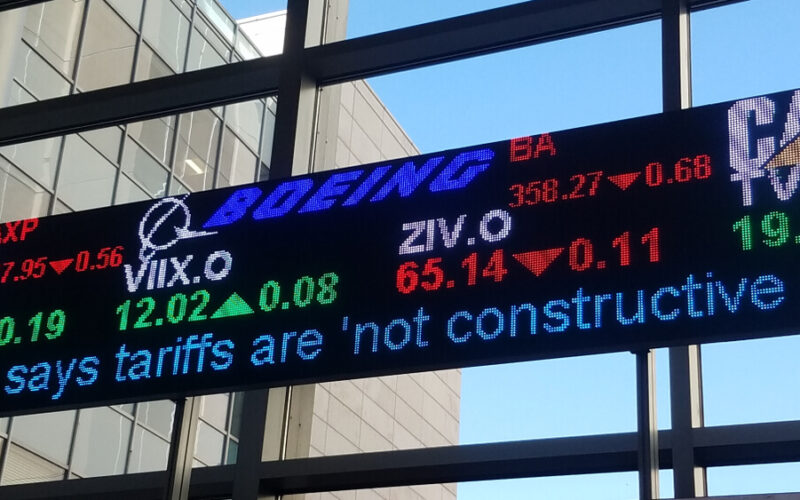During a very eventful week for Boeing, including changes to key executive positions and shades from the past prompting authorities to ask the company to explain themselves, the manufacturer has announced its latest financial results for Q3 2019, including an update on the grounded 737 MAX.
Last time round Boeing took a $5.6 billion charge related to the 737 MAX groundings, resulting in a record-breaking net loss for the company in Q2 2019 – the final line in the financial report read that Boeing was $2.9 billion in the red.
Although the manufacturer is even in a worse position – it delivered significantly less commercial aircraft in the quarter (62 versus 90 in Q2 2019) – the company still managed to earn $1 billion net earnings in Q3 2019. This was achieved due to the fact that its Defense, Space & Security and Global Services divisions improved their earnings significantly compared to Q3 2018, offsetting the Commercial Airplanes’ losses: the two divisions earned $755 and $673 million, respectively, while Commercial Airplanes’ net loss equaled only $40 million.
737 MAX a top priority
Dennis Muilenburg, the Chief Executive Officer of Boeing, who was stripped of his chairman position on October 11, 2019, said that the company’s “top priority remains the safe return to service of the 737 MAX, and we’re making steady progress”.
Boeing says that it has finished developing the software and training updates for the troubled jet, and is working towards recertification of the 737 with aviation authorities. However, the company does indicate that “authorities will determine the timing and conditions of return to service in each relevant jurisdiction”, meaning it is more than likely that the 737 MAX will return to service on a country-to-country basis.
While Boeing is assuming that the jet will be un-grounded in Q4 2019, airlines remain skeptical. Several facts might have prompted skepticism, including the fact that aviation authorities around the world will not take the Federal Aviation Administration’s (FAA) word for granted – instead, several agencies, including the European Union Aviation Safety Agency (EASA), will certify the aircraft themselves. EASA’s Executive Director noted that the agency will clear the MAX to fly in January at the earliest.
The FAA’s own Administrator, Steve Dickson, said that the agency received Boeing’s updates to the MAX, including a “complete system description” of changes to the aircraft. Dickson noted that it will take the FAA several more weeks before the final certification flight can take place, Reuters reports.
Just yesterday, on October 22, 2019, the company fired its first executive during the 737 MAX crisis – Kevin McAllister, who served as the CEO of Boeing Commercial Airplanes since November 2016.
Dennis Muilenburg is set to testify before the United States’ House Committee on Transportation and Infrastructure on October 30, 2019, regarding the Boeing 737 MAX crisis.

